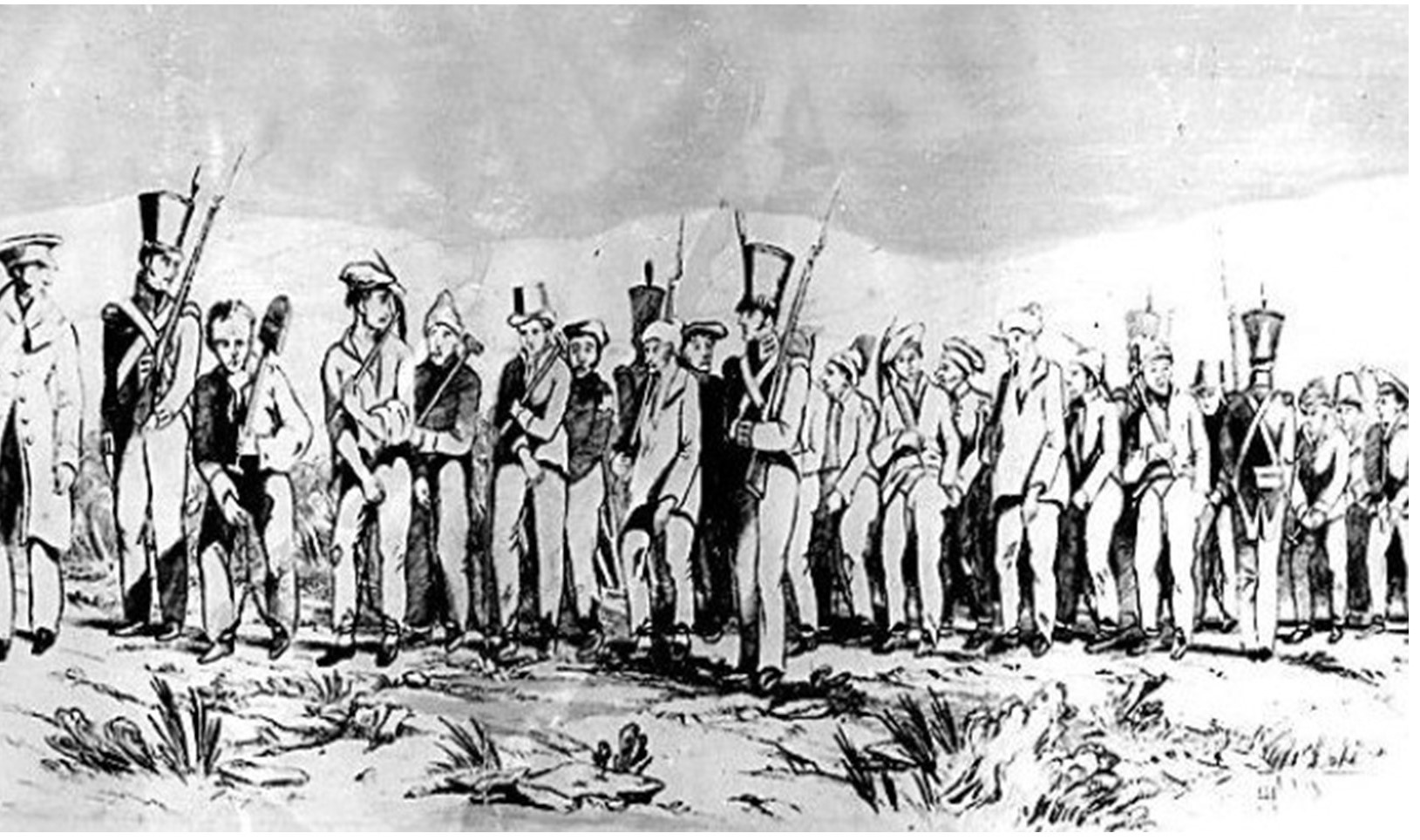January 26, what’s to celebrate but struggle?
Written by: Lindy Nolan on 26 January 2024
When Jacinta Nampijinpa Price outraged First Peoples by saying British “settlement” had a positive impact on them, she joked about her convict ancestors sent to Australia.
It’s true, England wasn’t kind to a huge and suffering underclass created by rising capitalism. Forced transportation ripped families and lives apart. But stolen First Peoples’s lands eventually brought better homes and better lives for most of their children’s children.
On 26 January, 1788, over 700 convicts were still trapped on board. One in 18 who left England died on the trip. More horrors awaited, for them and the 160,000 prisoners eventually sent to slave here. The First Fleet did better than the privatised for profit Second Fleet, which killed 26 percent of convicts on board. The rest were so sick, forty percent were dead within six months of arrival.
Convicts, sailors and soldiers were stunted from poor diet. Gadigal, Guringai, Wangal, Bidgigal and other clans grew tall and muscular. They thrived on the riches of the lands and waters.
When they saw convicts flogged, flesh and blood flying as the knotted, nine-tailed whips were flicked clear, First Peoples cried.
The invading British didn’t only destroy lives. The living stream flowing into what’s now Circular Quay became an open sewer.
A reminder
No wonder First Peoples were outraged four months back, when Ms Price praised what she calls ‘settlement’.
“A positive impact?” she answered a Coalition audience. “Absolutely, now we have running water, readily available food.”
She says Australia Day unites us, but her usual ally, Warren Mundine, disagrees. Like millions here, he wants to change the date. Why?
Whether it’s a Day of Mourning, or Survival or Invasion, or all three combined, it’s a day of struggle that unites First Peoples. As a public holiday, it easily brings tens and sometimes hundreds of thousands of First Peoples and their allies to the streets.
Compared to a decade ago, a tiny number of flags now fly on houses or cars.
Woolworths’ CEO cited small sales for not stocking Australia Day paraphernalia, and was given lots of free air on ABC 7.30 to explain that and sharper questions, like why it really wasn’t ripping off farmers and price gouging customers.
Ms Price and her corporate backers use threats to Australia Day to bind their non-Indigenous followers more closely to them. A few target Woolworths.
Yet, struggle to change the date has become so strong, other corporations and their supporters seek to turn it into its opposite, a way of defusing struggle by First Peoples and their allies.
Both groups may gain strength if the date is changed. But whatever Australia’s “celebration” date, fundamentals remain. First Peoples will never give up.
Print Version - new window Email article
-----
Go back
Independence from Imperialism
People's Rights & Liberties
Community and Environment
Marxism Today
International
Articles
| Productivity Commission wonks still pushing discredited economic rationalism |
| ADSTAR: Info-wars and the military, Canberra, 2024 |
| Madeleine King: Helping the Pentagon to our nickel |
| Binskin appointment comes with a conflict of interest |
| “Grey-Zone” intelligence assessments and real-war scenarios |
| As Australia aids Israeli genocide, Elders say it’s time to target Pine Gap. |
| MUA HERE TO STAY - supporting their members and the Palestinian people |
| US submarine visits not welcome and will never be “normal” |
| A tale of two payments… |
| AUKUS: Jobs diversion scheme |
| Transparency: who will the Australian Government listen to? |
| Australia surrenders sovereignty again: integrates with US-UK military exports and RnD |
| Cancel the Elbit contract! |
| ADF in trouble as personnel leave in droves |
| Heads must roll to clear Defence of US loyalists |
| January 26, what’s to celebrate but struggle? |
| The eclipse of economic rationalism? |
| Can Australian workers manufacture electric cars? Yes we can – dump the nuclear subs. |
| US wants Australia to stockpile the weapons it would need for war with China |
| Military Satellite Project JP1902: Class and State Power in Australia |
-----

